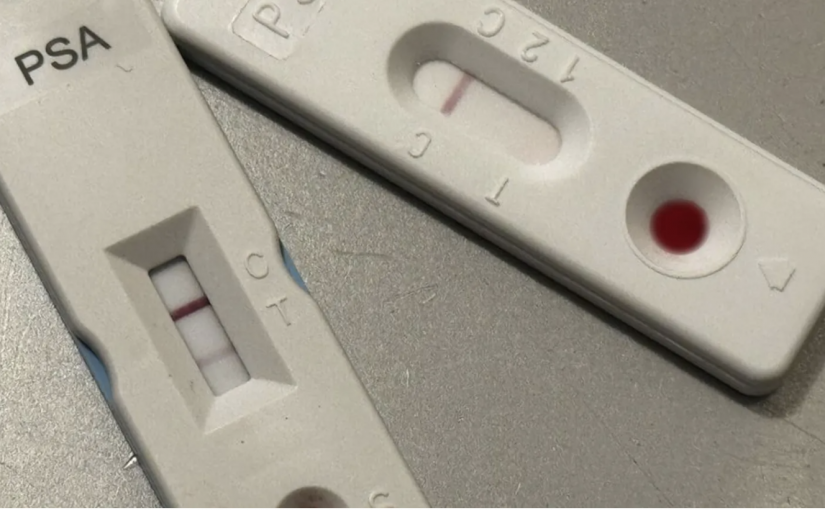Hamas handed over all 20 living Israeli hostages to Red Cross: public broadcaster
Warning over rapid at-home prostate tests

File photo: Of the five tests analysed by the BBC, one did not work, three were negative but one (left) returned a clear positive result / BBC
At-home tests for men worried about prostate cancer can give inconsistent and inaccurate results, BBC News has found.
The tests, which resemble a Covid lateral flow strip, turn positive if a high level of a protein called PSA is detected in a drop of blood.
Of five rapid tests analysed by the BBC, one did not work, three were negative or all-clear, but one returned a false positive result – all from the same blood sample.
Prostate Cancer UK said it had significant concerns about the sale of the tests given their “questionable accuracy” and the absence of a doctor to interpret the results.
Fifty and older
There is no national prostate cancer screening programme in the UK, unlike for breast, bowel and cervical cancer.
Instead, the onus is on men to request a blood test from their GP once they are over 50 years old, or from 45 for higher risk groups.
That NHS test, which is processed in a laboratory, measures the level of PSA released by the prostate, a small gland involved in the production of semen.
A high PSA level does not mean you have cancer but is a warning sign which can then lead to further scans and tests to rule out the disease.
PSA levels can be high for a number of other reasons – including an infection, recent vigorous exercise or sex – or in some rare cases remain normal despite cancer.
Google search data suggests interest in testing has risen sharply since the Olympic cyclist Sir Chris Hoy went public with his own diagnosis in October 2024.
Dozens of companies now sell self-testing kits designed to measure PSA levels.
They are available online and from some pharmacies and convenience stores with prices from £6 to £95.
They come in two main types:
Tests in which a blood sample is taken at home and posted to a private laboratory for analysis;
Rapid tests which give a result in minutes and display a dark line if PSA is detected above a certain level.
The BBC analysed five rapid tests all bought online from different companies, using a blood sample taken on the same day.
The UK medicines regulator, the MHRA, says in its guidance that over-the-counter PSA kits are “not a reliable indicator of prostate cancer” and must not “claim to detect cancer”.
Instead, at-home tests are often marketed as a way to “screen” for the disease or “assess prostate cancer risk”, language the regulator says would be allowed under the current rules.
One of the home tests ordered by the BBC also arrived in packaging and with instructions clearly marked “for professional use only”.













Leave a Reply
Be the First to Comment!
You must be logged in to post a comment.
You must be logged in to post a comment.